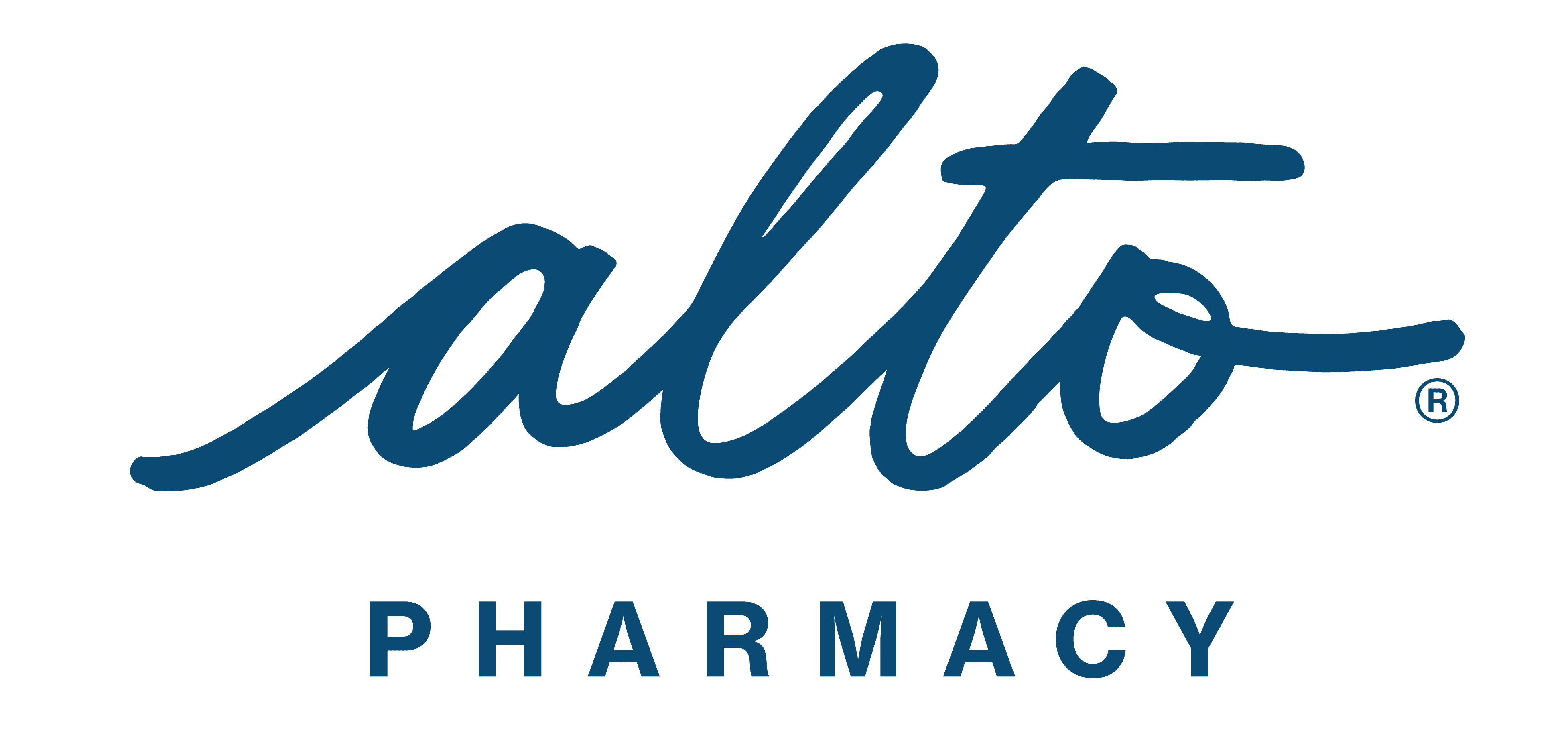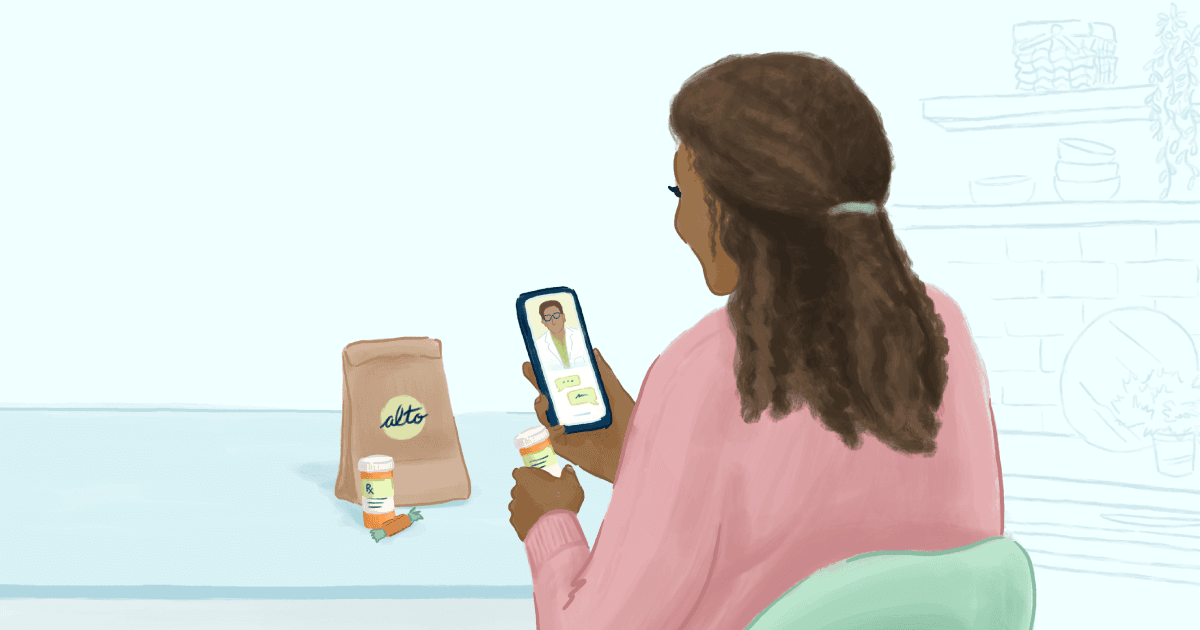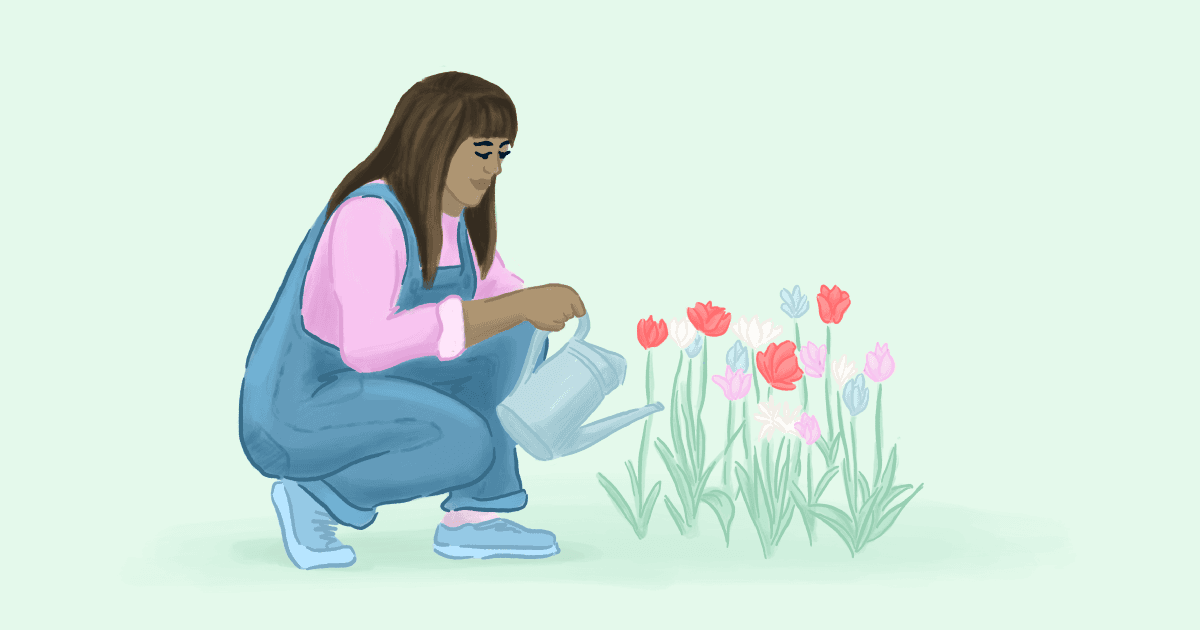Diversity At Alto: Building an Inclusive Healthcare Company and Culture
Nov 17, 2020
By
Alto Pharmacy
At Alto, we are redefining the pharmacy experience which has been part of a very old, broken way that has fueled systemic racism. We are building a pharmacy where every patient matters and is included. To do that, we need to foster a culture and company that is committed to challenging existing racism, injustice and prejudice, in order to create a culture and service that is inclusive. Our team consists of committed and passionate individuals who champion to effect positive change on issues related to race, injustice and prejudice.
This passion for equality is what we strived for when we first set out to build a team with a broad representation of diversity. Our goal was to create a community that reflects an inclusive culture regardless of age, education, gender, race, ethnicity, religion, sexual orientation, socio-economic status, or other dimensions of diversity. Yet even with the best of intentions we recognize that there is more work to be done to dismantle the systems and structures that fuel racism and inequity.
2020 has been a year like none other for so many. HR professionals around the globe have stepped center stage to support our organizations, teams and communities in ways many of us could not imagine. I wanted to write this post to share my personal journey on this topic while supporting others in capturing this moment. I am a white gay cis man. Many of my identities provide much privilege. I am committed to educating myself. I am building an environment where our teams can push past their fears to learn and grow.
Read more about Why We Prioritize Diversity at Alto.
Committing to the Journey
In 2019 we initiated our focused DEI (Diversity Equity Inclusion) work with the goal of ensuring employees felt safe, and included, and ensuring that candidates and employees have equal access to opportunity for advancement in the organization. We learned a few things during the early days of this work including balancing listening while creating the right structure to move to action. Fast forward to early 2020, in the midst of the global COVID-19 pandemic and the murder of Ahmaud Arbery, Breonna Taylor, Tony McDade, George Floyd, and Jacob Blake, we like many other organizations did not want another moment for action to pass by.
Read more about Alto’s Mission and Values.
The week after George Floyd’s murder we hosted a series of listening sessions for Altoids. We began them with a simple statement: “We are holding this space for you. Tell us how you are feeling. Share your experiences.” The results were powerful moments of revelation, pain and heartbreak. Black, Asian, Native and Latinx Altoids shared experiences of racism, sexism, and prejudice in their lives. As a leadership team, we started to wake up to the enormity and urgency of the work we had ahead of us.
In reflecting on these tragic murders and Altoid voices, we realized we needed to expand the building blocks of our 2020/2021 DEI strategy. We recognized that we didn’t want to rely on the members of our underrepresented communities to lead us on this journey. We do not expect underrepresented professionals to teach us, especially cis white men, about the history and experiences that led us to this moment.
We made the decision to find a partner to help. What struck me about Pathfinder and Trier Bryant, is their ability to push our thinking on this critical work while meeting us where we are (each one of us). Trier is a strategic leader with distinctive Tech, Wall Street, and military experience spanning across 15 years. Pathfinder has an unwavering commitment to advise leaders on how to create a more equitable, inclusive, and thriving culture to produce prosperous companies. I appreciate many aspects of Trier’s support including that she too is a Chief People Officer, she wears these shoes. Given that experience plus Pathfinder’s work with clients like Equinox, Compass, SoundCloud, Gusto, and eBay, we gain perspective and lessons learned.
Our first half-day session with Trier focused on educating the group about the language of diversity (e.g. Is it okay to say Black? What makes up the LGBTQIA+ community?). Next we spent time learning about key historical events starting from 1619 that have shaped our current society with respect to race, oppression, and white supremacy in America. We watched videos displaying more covert forms of white supremacy [see Ellen Tuzzelo’s Pyramid of White Supremacy].
These are actions I could recognize in myself (i.e. not challenging racist jokes when told by my family members, not always believing the stories of Black victims). I felt sadness and shame. Sharing these feelings and our part in the current state of our nation is an important step. We took time to process and walked away with an epiphany.
Over the past decades, America and specifically Corporate America lulled itself into thinking that we’ve been fighting bias. Our aim up until this moment was to reduce or eliminate bias. We were wrong. Our fight, our work is to eliminate racism and white supremacy in America. This work is neither a marathon nor a sprint; we’re committed to doing this work all our lives.
Defining Diversity
With that realization in mind we got more specific about what diversity meant to us and where we wanted to focus our teams at Alto. Diversity by nature is very broad and inclusive. We used individual characteristics, experiences, and abilities consistent with our values and mission that includes but is not limited to:
*Sexual Orientation and language abilities will begin to be captured with Workday, our new HR system.
As a part of the above education, we learned that while we all have various identities and intersections that represent our Altoids, intersectionality is a term that must be clearly understood to comprehend unique modes of discrimination and privilege that occur in the workplace.
Identity - the fact of being who or what a person is; affinity (i.e. Hispanic/Latinx, Black, Male, Female, Nonbinary)
Intersections - a point at which two or more identities intersect (i.e. Hispanic/Latinx Gay Male, Black Heterosexual Female)
Intersectionality - the cumulative way in which the effects of multiple forms of self-identifications intersect, overlap, or combine to create unique modes of discrimination and privilege; intersectionality identifies advantages and disadvantages that are felt by people due to a combination of factors
While Alto recognizes a broad and inclusive definition for diversity of various identities, there are strategic priorities for underrepresented groups at the company. After benchmarking current tech and health care demographics, we decided to focus our DEI work for Altoids including our leadership, managers and independent contractors on the following underrepresented groups at Alto:
Black
Hispanic/Latinx
Women in STEM (Science Technology Engineering Math)
Naming Our Privilege and Doing Our Work
The following month we read So You Want to Talk about Race by Ijeoma Oluo. What an incredible read! This engaged us in thinking about and naming our privilege. In the next half-day session with Trier, we discussed the book to name our privilege and explored how it influenced our personal and professional development.
We learned several lessons from Ijeoma and Trier including that we’re going to make mistakes and say the wrong thing; that is part of the journey yet we still must do the work. Also that microaggressions are as damaging as overt racism and we must do better at calling these detrimental behaviors out everyday.
Lastly, non-white people fear retaliation most when the topic of racism and prejudice comes up; we must create a space for everyone’s voices and perspectives to not only be heard but respected.
As I reflected on our second half-day session together, I saw the journey for our leadership team through four stages.
Stage 1: Self-Awareness-doing the personal work regarding racism and privilege
Stage 2: Awakening-acknowledgement of role of racism, privilege, and gressions,; doing the work in our professional life
Stage 3: Empowering-identifying the work to be done with our team, team members and building more inclusion on our teams
Stage 4: Advocating-taking our roles as a senior leaders at Alto to change behaviors and lead change at the company and our communities
For the last round of workshops we split up our senior leaders into smaller groups so that we could focus on the work needed to be done with each of their teams. In these sessions, we learned more about identities. How do we identify? What do we learn and acknowledge about our team members identities? We discussed specific examples of how intersectionality shows up in the workplace and the role it places in each other’s experiences. This pivot allowed us to move into Stage 3.
As we embarked on taking this work to our team, we felt more prepared and comfortable because of the time spent educating, processing and doing our own work ahead of time. This allowed each of us to live one of our core values “start with empathy.” Being empathetic is hard when you haven’t done your own work.
Alto’s Action Plan
As a result of all the foundational work we’d done as individuals, as a team and as a company, in July, our leadership team committed to a bolder, crisper DEI plan that includes four strategies with clear goals:
Hire - ensure we have diverse teams and insure all are valued
Include - increase inclusion and community
Develop - educate our leadership team and all Altoids
Invest - support initiatives with money and time
This new DEI plan rallied the team and catalyzed us to make some significant changes with clear alignment, commitment and clarity around the problem we’re trying to solve. For example, one immediate change we made was to focus our executive search process on underrepresented talent. I’m excited to share that only a few months later (most searches take 6 months), we were able to hire several outstanding candidates from underrepresented backgrounds.
Before, we had just been “hoping” for diversity and thus looking in all the wrong places. Once hiring diverse talent at the executive level became a critical mandate, that forced us to really seek the right kind of strategy. I’m excited to share some more of the significant changes we’ve made, over a series of posts over the next few months.
We are far from perfect. We have work to do to meet our goals. These are our first steps.
Alto’s Commitment
In January, we will share our first DEI Report including workforce demographics, success stories, lessons learned from 2020, and aspirational goals for 2021 and beyond.
We condemn the violence and systemic racism that has harmed marginalized communities, specifically Black communities, for far too long. At the same time, we commit to look inward and educate ourselves to continue to create safe spaces for Altoids and to act on what we learn.
This will be a lifelong journey and we will continue to share updates on our progress. Our actions must be sustained and focused on keeping the momentum of enabling change now and for future generations.
Last, personally this work is the most fulfilling of my career. There are days I am exhausted. There are days I need help. Yet there are many days I overflow with pride in our team. I am most hopeful about the work ahead and seeing the early fruits of this work while challenging us each day to do more.














